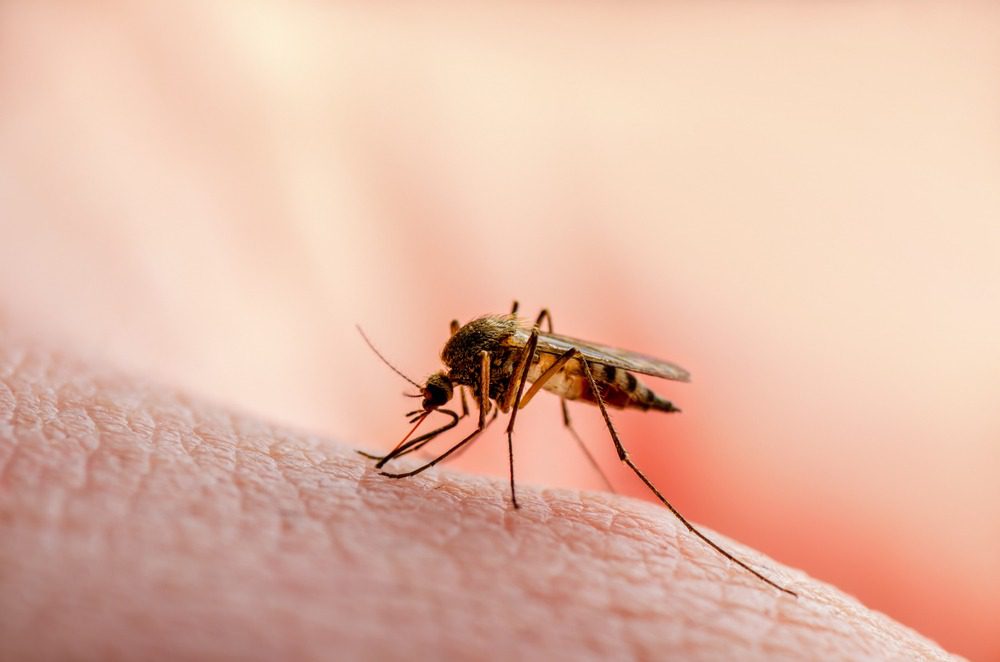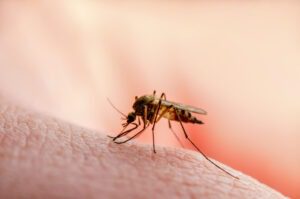Cystitis in Men : What Is It and Who Can Get It?
Cystitis is a common urinary tract infection (UTI) that primarily affects women, but it can also occur in men. Although …
Read More

Malaria, a mosquito-borne disease, remains a huge worldwide health issue, especially in sub-Saharan Africa and South Asia. As a dangerous disease, jungle fever is brought about by Plasmodium parasites that are transmitted by the bite of contaminated female Anopheles mosquitoes. The World Health Association (WHO) reports that around 229 million instances of jungle fever happened globally in 2019, with more than 409,000 deaths. Albeit critical headway has been made in jungle fever counteraction, finding, and treatment, the mosquito-borne disease continues to be a significant test for worldwide health offices. This article is intended to give an inside and out an overview of intestinal sickness, its transmission, side effects, finding, therapy, counteraction, and the continuous endeavors to kill the disease.
Malaria, the mosquito-borne disease, is transmitted between individuals through spoiled female Anopheles mosquitoes. These mosquitoes become contaminated when they feed on the blood of wilderness fever patients. Once defiled, the mosquito can spread the disease to others through its eating. The transmission of this mosquito-borne disease is more normal in districts with favorable conditions for mosquito replication, such as warm temperatures, high moisture, and flat-water sources.
The example of the presence of gastrointestinal illness involves both the mosquito and the human host. Plasmodium parasites pass from the bloodstream to the liver when a polluted mosquito consumes an individual. In the liver, the parasites copy and mature, eventually returning to the dissemination framework and polluting red blood cells. The parasites rehash inside the red platelets, making them burst and conveying more parasites. This cycle prompts an increase in parasite load in the blood, causing wilderness fever.

Malaria fever side effects usually show up somewhere in the range of 7 and 30 days after the invective mosquito bite, although certain kinds of the parasite can persist for months or even a long time after contamination. The side effects of this mosquito-borne disease are often influenza-like and include:
Fever
Chills
Perspiring
Cerebral pain
Muscle hurts
Sickness and retching
Weariness
1. Severe iron deficiency: A critical decrease in red platelets, prompting weakness, unsteadiness, and windiness.
2. Cerebral Malaria: Expanding of the brain caused by blockage of tiny veins, resulting in seizures, unconsciousness, and possible demise.
3. Acute respiratory distress syndrome (ARDS): Liquid accumulation in the lungs, causing trouble breathing and respiratory disappointment.
4. Organ disappointment: Intestinal sickness can harm the kidneys, liver, and spleen, leading to multi-organ disappointment and passing.
Early diagnosis and prompt treatment are fundamental to overcoming intestinal illness. Jungle fever is analyzed through blood tests, including microscopy or Rapid Symptomatic Tests (RDTs), which identify the proteins created by Plasmodium parasites. Once analyzed, treatment depends on the type and severity of intestinal infection, as well as the patient’s age, pregnancy status, and any current medication opposition.
The essential treatment for mild intestinal sickness is Artemisinin-based Blend Treatment (ACT), which consolidates an Artemisinin subordinate with an accomplice drug. ACT is exceptionally useful in treating mosquito-borne diseases, but it should be regulated immediately to prevent obstruction. In instances of extreme jungle fever, intravenous antimalarial drugs, for example, artesunate or quinine, might be directed close by careful consideration in order to steer the patient’s condition to a successful outcome.
Preventing malaria involves individual assurance measures and local area-based control methodologies. These actions plan to reduce mosquito bites and, consequently, the transmission of mosquito-borne disease. Key counteraction strategies include:
Insect spray-treated bed nets (ITNs): ITNs are one of the most effective ways of forestalling jungle fever. These nets are treated with insect poisons that repel or kill mosquitoes, blocking the individual sleeping under the net and the mosquitoes. ITNs are demonstrated to reduce intestinal sickness transmission and related passings fundamentally when they are used as a standard practice.
Indoor lingering spraying (IRS): This mosquito-borne disease control technique involves spraying homes’ inside walls with insect poisons to kill or repel mosquitoes. IRS is especially viable in regions with high jungle fever transmission rates and can provide security for a while.
Antimalarial drugs: In regions where jungle fever is common, certain in danger populations, like pregnant women, small children, and explorers, might be recommended antimalarial drugs for prophylactic use. These drugs can help prevent the spread of mosquito-borne disease in these weak gatherings.
Mosquito control: Methods to control the mosquito population, such as larval sources and the use of insect poisons, can lessen the general likelihood of intestinal sickness transmission. This approach requires an intensive understanding of the biology of mosquitoes in the neighborhood and the execution of designated interventions.
Jungle fever immunizations: The development of an intestinal sickness antibody has been a well-established worldwide medical need. As of late, the RTS S/AS01 antibody has shown effectiveness in lessening the possibility of jungle fever in small kids. Even though jungle fever immunization is still not widely available, the subsequent improvement and possible dissemination of jungle fever immunization could greatly influence the battle against this mosquito-borne disease.

Critical headway has been made in lessening jungle fever’s worldwide burden, the mosquito-borne disease remains a significant public health challenge. The World Wellbeing Association’s Worldwide Specialized Methodology for Jungle Fever 2016-2030 outlines aggressive objectives for intestinal sickness control and disposal. These objectives include diminishing worldwide jungle fever frequency and death rates by 90% by 2030.
Reinforcing reconnaissance frameworks: Vigorous observation frameworks are fundamental for following jungle fever cases, recognizing transmission areas of interest, and illuminating designated interventions. These frameworks can help direct the effective allocation of resources and guarantee that jungle fever control efforts have the greatest possible effect.
Increasing access to intestinal sickness elimination, analysis, and therapy: Ensuring that people in danger of jungle fever get access to viable anticipations and treatment measures is crucial to delaying the spread of the mosquito-borne disease. For this to be accomplished, there must be a constant interest in medical services foundations, as well as effort to address social, financial, and calculated barriers to access to medical care.
Cultivating development and exploration: Proceeding examination and advancement are fundamental for intestinal sickness control and ending endeavors. This incorporates the advancement of highly effective symptomatic instruments, medicines, and immunizations, as well as the recognizable proof of novel methodologies for mosquito control and disease observation.
Drawing on networks: Fruitful jungle fever control and end endeavors require the dynamic commitment and support of impacted networks. This includes bringing attention to the mosquito-borne disease, promoting counteraction measures, and ensuring that people with jungle fever side effects seek short-term diagnosis and treatment.
Reinforcing organizations and joint effort: The worldwide battle against jungle fever requires the participation and cooperation of a different scope of partners, including legislatures, non-legislative associations, research establishments, and the confidential area. By cooperating, these accomplices can pool assets and abilities, coordinate endeavors, and eventually speed up progress toward intestinal sickness disposal.
by executing compelling counteraction and treatment measures, fortifying observation frameworks, encouraging exploration and development, connecting with networks, and advancing organizations, we can, in general, make progress toward a world free of intestinal sickness.
As we continue to fight this mosquito-borne disease, recognizing the human cost of intestinal sickness and the need for supported action is fundamental. Each life saved, each case avoided, and each step taken towards intestinal sickness and carries us in the direction of a better and more even-handed future for all.
Even with arising difficulties, for example, medication and insect poison resistance, environmental change, and the ongoing Coronavirus pandemic, the battle against jungle fever should be regarded as a universal health need. By keeping up with our emphasis on this mosquito-borne disease and utilizing the force of development and coordinated effort, we can have an enduring effect on the large number of lives impacted by intestinal sickness every year.
jungle fever is a dangerous mosquito-borne disease that remains a major global health challenge. As long as continuous efforts and speculation were made, the annihilation of intestinal disease would not only save lives, but it would also prompt huge social and monetary advantages. As jungle fever excessively affects the least fortunate and weakest networks, wiping out the mosquito-borne disease would contribute to diminishing neediness, working on insightful results, and advancing financial development. By putting resources into the battle against intestinal sickness, we are pursuing a healthier world and an even more equitable and prosperous one.
Together, we can keep gaining ground in the fight against jungle fever, the mosquito-borne disease that has afflicted humankind for a long time. Earnestly, through development, and joint effort, a future free from jungle fever is within our compass. As we endeavor towards this objective, we should not forget the large numbers of lives lost to jungle fever. We should also remember the incalculable people who continue to be affected by its staggering impacts. It is our collective responsibility to ensure that their accounts act as a strong wake-up call of the criticality and significance of our main goal to destroy intestinal sickness for the last time.
“Always polite and delivers medication on time. Absolutely love the service they provide and great staff. Keep up the good work ????”
“A fantastic pharmacy. Efficient, helpful staff who deliver within a few hours of prescription being prescribed or less. Absolutely amazing service.”
“Can highly recommend this service, the delivery is so speedy and always reliable, delivered by hand to the door, just amazing, thank you.”
Cystitis is a common urinary tract infection (UTI) that primarily affects women, but it can also occur in men. Although …
Read MoreIntroduction: Unveiling the Mysteries of Soma Soma medication, also known as carisoprodol, is a muscle relaxant commonly prescribed to alleviate …
Read MoreUnderstanding Ramipril and Its Role in Health Ramipril, a medication commonly prescribed for high blood pressure and heart failure, belongs …
Read MoreClick one of our contacts below to chat on WhatsApp